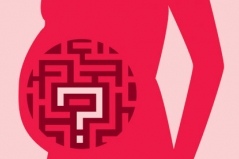Call for Book Reviews and Reviewers
Call for Book Reviews and Reviewers
Call for Book Reviews: In-Mind Magazine In-Mind Magazine is currently seeking reviewers interested in contributing short (< 2,500 words) book reviews. This may include retrospective discussions of classic works in psychology or reviews of more contemporary edited volumes, monographs, or popular books of interest to psychologists. Single submissions are welcome, and a handful of positions are available for those who would wish to be regular contributors. In-Mind Magazine is a peer-reviewed online journal that publishes short reviews (about 2,500 words)... / more
Call for Papers
Call for Papers
Call for Papers: In-Mind Magazine We invite you to submit short review articles for In-Mind Magazine, the flagship online journal of the In-Mind Foundation. In-Mind Magazine is a peer-reviewed online journal that publishes short reviews (about 2,500 words) of topics in all fields of psychology. Our outlet is unique—articles are written for a broad audience, and intended to inform the general public about psychological trends and research. We wouldn't call ourselves pop-psychology, but we aren't a typical peer-review journal either... / more
Adverse Childhood Experiences and its lifelong consequences
Adverse Childhood Experiences and its lifelong consequences
Unfortunately, some children grow up with maltreatment and household dysfunction. In this post, I will explain how these adverse childhood experiences (ACEs) not only have a negative influence during childhood, but later on in life as well, and I will give some advice about how to prevent these long-lasting negative outcomes. / more
Marginal and Happy – How can people be culturally detached and well adjusted?

keywords:
culture, identity, marginalization, marginalisation, acculturation, heritage, distinctiveness, uniqueness
Marginal and Happy – How can people be culturally detached and well adjusted?
Belonging to several cultural groups at the same time can be associated with complex feelings of group membership. In this post, I will provide an explanation for the phenomenon whereby many immigrants marginalize—feel detached from the mainstream culture they live in and the heritage culture they grew up in—while feeling happy. / more
Are conservatives really simple-minded?

keywords:
political ideology, conservatives, simple-minded, complexity
Are conservatives really simple-minded?
The current consensus in psychology is that political conservatives are uniquely simple-minded. Indeed, even the famous critic of political bias and Heterodox contributor Jonathan Haidt (and colleagues) suggested that there is a “consistent difference between liberals and conservatives” on several measurements related to cognitive complexity (Joseph, Graham, & Haidt, 2009, p. 176). / more
Foetus or child? Language and attitudes toward abortion
Foetus or child? Language and attitudes toward abortion
Due to moral, religious and cultural sensibilities, the topic of abortion still gives rise to controversy in many countries. In this post, I will discuss our research showing how language used in abortion discourse can affect people’s attitudes by changing their attributions of humanity to unborn (Mikołajczak & Bilewicz, 2015). / more
Refugees work placement: Call for collaboration

keywords:
refugees, netherlands, work placement, recruitment
Refugees work placement: Call for collaboration
In the Netherlands only, more than 25.000 refugees arrived this year, and the numbers are rapidly increasing. One of the biggest challenges for refugees is to acclimatize, adapt, and find jobs in a new country. As a group of behavioral change experts, we want to help them, but we need some expert collaborators. This is a call for collaboration with a programmer, translator, and refugee organizations. / more
Empathy and prejudice after attacks in Paris and Beirut

keywords:
terrorism, Construal Level Theory, terror management theory, fear, prejudice, over-generalization, categorization
Empathy and prejudice after attacks in Paris and Beirut
In this blog, I will try to explain why we showed more empathy for victims in Paris than in Beirut, and how feelings of fear after such a terrorist attack can lead to prejudice against out-groups, especially against Muslims. / more
What does your selfie say about you?
keywords:
personality, selfie, zero-acquaintance judgment, social media
What does your selfie say about you?
Selfie is a new form of self-expression in this digital age. In this post, I will discuss our research on how selfies reveal the personality of their owners and how people judge others’ personality based on selfies. / more
Bicultural minds: How capable are you in responding culturally appropriate?
Bicultural minds: How capable are you in responding culturally appropriate?
When individuals live actively with two cultures (in families, organizations or society at large) they, partly unconsciously, partly deliberately, may change towards acquiring a ‘bicultural mind’. I will discuss here, is whether these individuals are capable of spontaneously producing appropriate responses that fit the expectation patterns of either of their two cultures. / more




